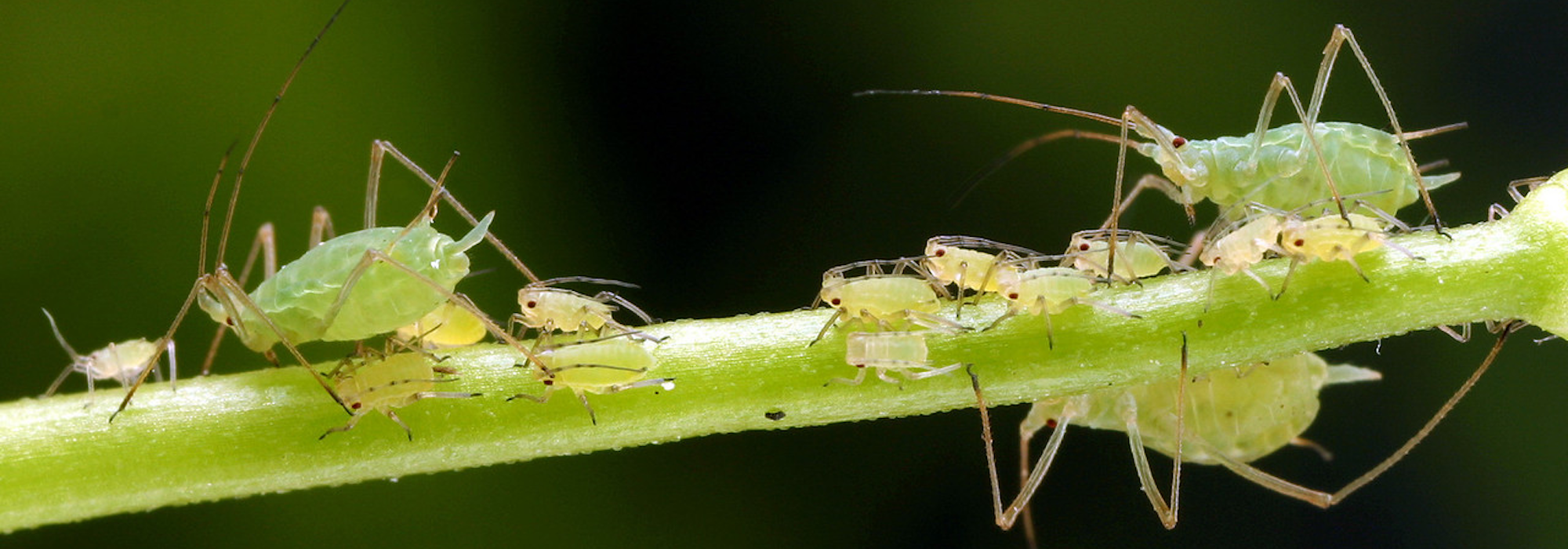Nancy A. Moran
Research
CURRENT RESEARCH
PAST RESEARCH
- Elucidating the molecular bases of species interactions in host-associated bacterial communities
- Role of Gut Microbiota in Honey Bee Health
- Coevolutionary dynamics in an obligate insect symbiosis
- Colonization by a Co-evolved Gut Community
- Dual Obligate Intracellular Symbionts
- Control of Bee Behavior by Stably Engineered Gut Microbial Communities
- Dimensions of Biodiversity: the Gut Microbiota of Bees
- Environmental Genomics of Symbionts in Pea Aphids
- Genomics of Bacterial Symbionts of Plant Sap-Feeding Insects
- Biocomplexity in the Environment
- Bacterial Endosymbiont Diversity in Drosophilla
- Biocomplexity of Symbiotic Bacteria
- Genomic Evolution of Buchnera
- Evolutionary Dynamics of Endosymbiont-Borne Adaption on Aphids
- Molecular Phylogenetics of Sternorrhyncha
- Phylogenetics of Aphids
- Genetically Variable Complex Life Cycles in Heterogeneous Environments
PAST Research Projects

BIOCOMPLEXITY: Integrating Genomic and Ecological Analysis of Symbiotic Bacteria that Mediate Insect Herbivory
(PI is Nancy Moran, co-PI is Paul Baumann)
 Many plant-feeding insects are dependent on bacterial symbionts to supplement their nutrition: without symbionts, these insects cannot grow or reproduce. In some cases, transmission of symbionts occurs only from mother to progeny; these bacteria possess specialized genetic traits that allow them to better nourish their hosts. Other symbionts infect hosts through other routes and appear less specialized. Approaches from modern genomics will be used to explore how gene content and gene expression of long-term symbionts affect host nutrition and growth under different environments, such as host plants differing in nutritional quality. In addition, the effects of facultative symbionts on insect growth and survival, currently unknown, will be explored. Experiments will test whether these more mobile symbionts are vectored by parasites of the insect hosts or confer resistance to these parasites.
Many plant-feeding insects are dependent on bacterial symbionts to supplement their nutrition: without symbionts, these insects cannot grow or reproduce. In some cases, transmission of symbionts occurs only from mother to progeny; these bacteria possess specialized genetic traits that allow them to better nourish their hosts. Other symbionts infect hosts through other routes and appear less specialized. Approaches from modern genomics will be used to explore how gene content and gene expression of long-term symbionts affect host nutrition and growth under different environments, such as host plants differing in nutritional quality. In addition, the effects of facultative symbionts on insect growth and survival, currently unknown, will be explored. Experiments will test whether these more mobile symbionts are vectored by parasites of the insect hosts or confer resistance to these parasites.
Although bacterial symbionts are central in insect-plant interactions, including those affecting agricultural crops and forests, their biology is little known. The proposed work would exploit recent developments in molecular biology to reveal the full range of symbiont effects on the biology of plant-feeding insects. Results have the potential of exposing novel, specific methods for insect control that might be less costly or hazardous than commonly used chemical control measures. This project, which is being supported by the Directorates for Biological Sciences and and by the Division of Chemistry and the MPS Office of Multidisciplinary Activities, will impact several scientific fields, and the findings may provide basic information useful for both environmental and biotechnological applications.